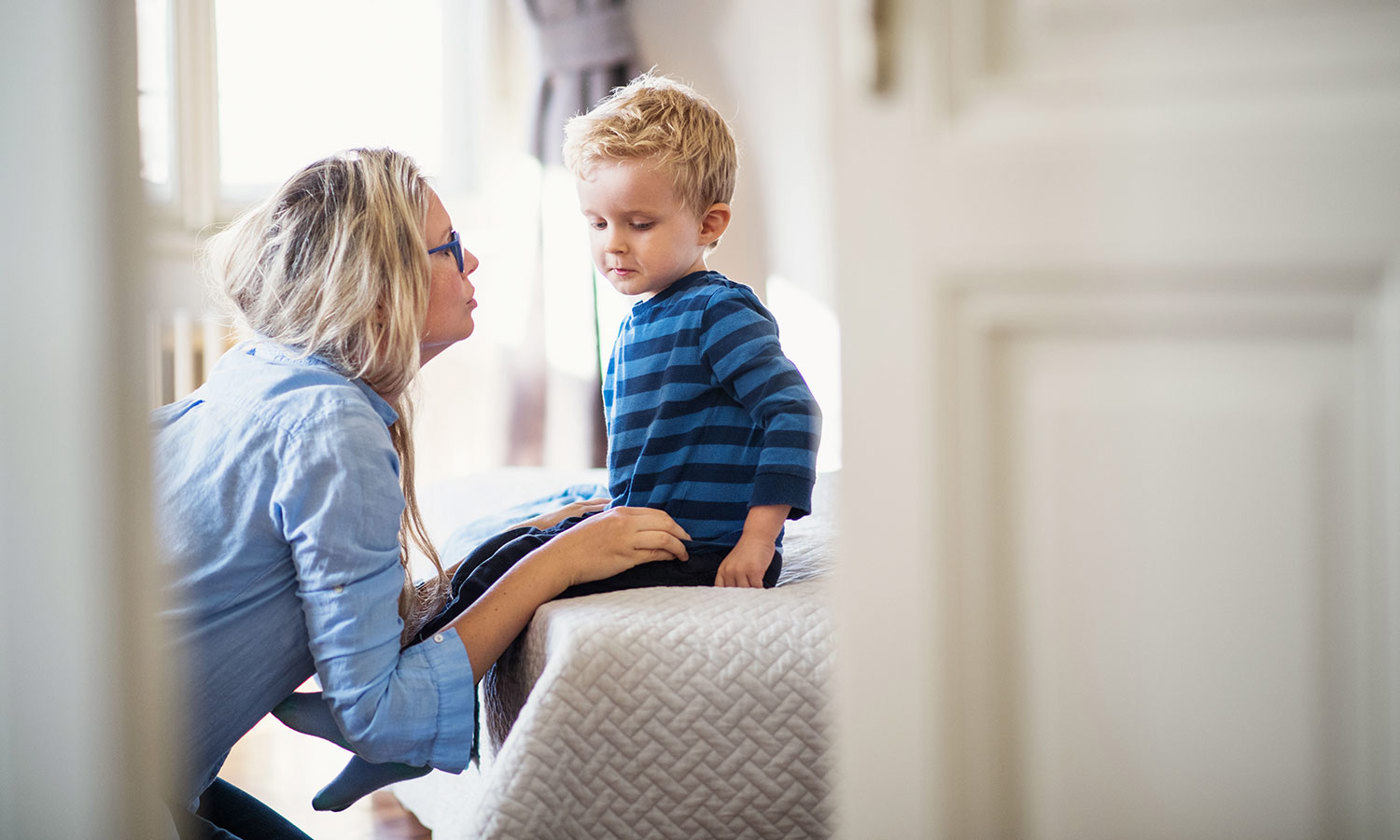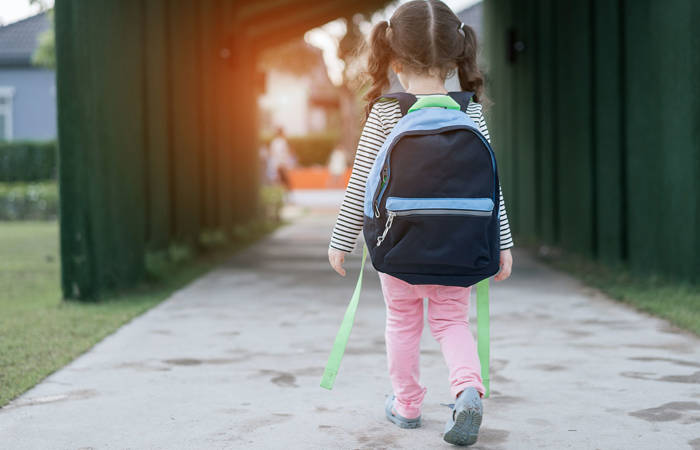Like what you see?
Sign up to receive more free parenting advice.
Thank you for subscribing to our newsletter!
Child Development

Credit: iStock.com/Halfpoint
“No one is going to like me; I won’t have any friends…”
“I can’t do it…”
“I don’t want to do it…”
“No, it’s going to be too scary…”
This is what negative self-talk sounds like from a preschooler.
Preschoolers, just like adults, experience anxiety when stepping into unfamiliar environments and this can manifest as negative self-talk.
“Negative self-talk is a very normal and a common response to facing challenges,” says Professor Adam Guastella, Clinical Psychologist and the Michael Crouch Chair in Child and Youth Mental Health at the University of Sydney’s Brain and Mind Centre.
“It’s when children criticise themselves or predict negative outcomes for themselves, and it is linked to underlying anxiety,” he says.
“Negative self-talk can happen for a whole range of reasons in preschoolers.
“Often, it is because a child feels anxious or worried about an experience, whether they are worried about being separated from a safe and comfortable place (like home) or person (like their parents), or whether they are worried about something they perceive as dangerous happening in a new environment.”
Sensitive and introverted children
Professor Guastella says that negative self-talk may be more common in children who are sensitive or introverted.
“Genetics can be involved but it can also be based on modelling from others, how they see their parents respond to challenges and the degree of criticism they perceive.
“These all affect whether a child feels worried or anxious about trying something new.”
Professor Guastella emphasises that there is an opportunity for children, with guidance from their parents, to learn how to respond to challenges to develop skills in emotional regulation, as well as, to develop resilience.
“That learning opportunity and process is very important,” he says.
“Children need to understand that they can get through or overcome whatever challenge they are worried about, and that it isn’t going to result in some terrible outcome.
“It is one of the foundations for developing self-confidence.”
It can be a challenge, as a parent, to know when to pull back and let your child experience that distress or to give more support, and no one is perfect at this.Professor Adam Guastella
Stay up to date with the latest news and articles from First Five Years
Thank you for subscribing to our newsletter!
3 Strategies: How parents can help
Professor Guastella explains that parents can easily become frustrated when they see the difficulty their child is having.
“The first strategy I recommend for parents is to not be highly critical or punitive in the process of trying to get your child to do whatever task they are resisting, or to shut down the child’s concern,” he says.
The second step, he recommends, is to listen to the concerns expressed by the child.
“Sometimes, even the child doesn’t fully understand why they are anxious about a certain situation,” he says.
Taking the time to actively listen and find out the underlying concern, parents will be better equipped to problem solve with the child and develop some clear strategies on how to manage the problem.
“The third strategy is a bit trickier,” says Professor Guastella.
“Parents need to learn how much involvement to have in those experiences.
“Some parents will be overprotective and stop the child from experiencing those challenging situations.
“However, that overprotectiveness can increase the child’s anxiety.
“Others may not want to walk through the steps with children to give them that guidance.
“It can be a challenge, as a parent, to know when to pull back and let your child experience that distress or to give more support, and no one is perfect at this.
“You are there for your child, you are there to listen to them, but you aren’t there to stop them from experiencing those challenges.”
Anxiety and mental health
Professor Guastella emphasises that it is natural for anyone, adult or child, to seek safety when they are afraid, but that it is very important to not reinforce safety seeking, but to encourage and promote independence.
In some cases, negative self-talk can become more than just a child trying to voice their anxiety.
“When the negative self-talk starts to impact on a child’s life, for example they aren’t able to go to school or the anxiety is manifesting into physical illness, if these become quite prominent and stop the child from participating in everyday life, then it’s important to seek professional help,” he says.
Anxiety-related mental health issues were identified as the third most common chronic condition among children aged birth to 14 in the 2020 report on Australia’s Children.
Anxiety disorders were also found to be more common among girls and led to an average of six missed days of school.
Professor Guastella highlights that parents need to know that no one gets it right all the time, especially in these situations.
“If you do your best to support and encourage your child when they are expressing negative-self talk, then you are more likely to get good outcomes,” he says.
“But there are going to be some days that you are just not going to get it right and that’s okay.”






